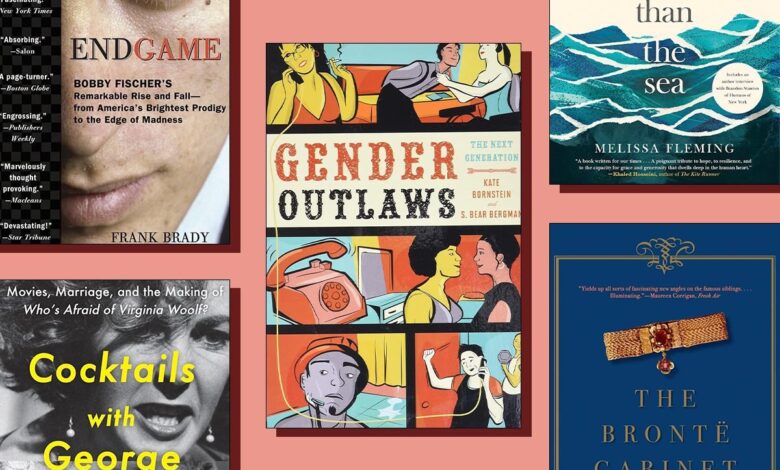35 Best Biographies to Read in 2024 — Greatest Biographies Ever

FAQs
What are biography books?
Biographies are nonfiction books about a person’s life. They may look broadly at the full span of a person or focus on a particular time period or aspect of interest—like someone’s early years or the years leading up to a particular event. Biographies are grounded in facts and supported by documents, letters and journals, quotations and collected research.
What is the difference between a biography, an autobiography and a memoir?
Biographies always have both the advantages and disadvantages of being written by someone else: someone who is at least one degree apart from the subject. They provide a different perspective, holding up a mirror to reflect their subject.
Autobiographies, however, are written by the subject of the book. While they also focus on facts and use documents and quotations, they can be a bit inspirational and emotive because they’re written in the first person. You often get a lot more personal insights and ideas from autobiographies, but you have to be more mindful of personal bias as well as blindspots or the fickleness of memory. Becoming by Michelle Obama is pretty easily classifiable as an autobiography.
And now for memoirs. While they are written by the main subjects themselves, they often read more like a novel. They also tend to play more with memory, use more literary devices and can sometimes mix reality up a bit (like exact chronology) for the sake of the emotional or personal truths being shared. Crying in H Mart by Michelle Zauner is a good example of a memoir.
Get Reader’s Digest’s Read Up newsletter for more books, humor, cleaning, travel, tech and fun facts all week long.
About the experts
|
Why trust us
At Reader’s Digest, we’ve been sharing our favorite books for over 100 years. We’ve worked with bestselling authors including Susan Orlean, Janet Evanovich and Alex Haley, whose Pulitzer Prize–winning Roots grew out of a project funded by and originally published in the magazine. Through Fiction Favorites (formerly Select Editions and Condensed Books), Reader’s Digest has been publishing anthologies of abridged novels for decades. We’ve worked with some of the biggest names in fiction, including James Patterson, Ruth Ware, Kristin Hannah and more. The Reader’s Digest Book Club, helmed by Books Editor Tracey Neithercott, introduces readers to even more of today’s best fiction by upcoming, bestselling and award-winning authors. For this piece, Tria Wen tapped her experience as a journalist who covers literature for Reader’s Digest to ensure that all information is accurate and offers the best possible advice to readers. We verify all facts and data, back them with credible sourcing and revisit them over time to ensure they remain accurate and up to date. Read more about our team, our contributors and our editorial policies.
Sources:
- Natalie Dykstra, emerita professor of English at Hope College and author of Chasing Beauty: The Life of Isabella Stewart Gardner; email interview, June 2024
- Brad Gooch, author of Radiant: The Life and Line of Keith Haring; email interview, June 2024
- Andrew Lipstein, author of The Vegan and Something Rotten; email interview, June 2024
- James Marcus, author of Glad to the Brink of Fear: A Portrait of Ralph Waldo Emerson; email interview, June 2024
- Kate White, author of The Last Time She Saw Him; email interview, June 2024
